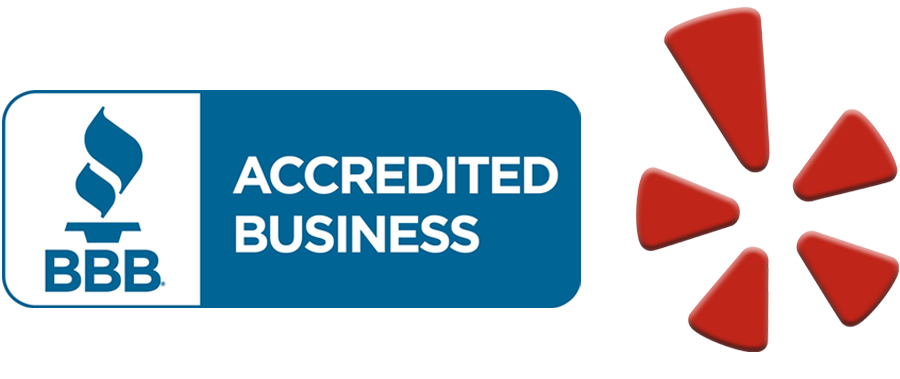When the summers in Dallas hit their peak, keeping your home consistently cool can be a challenge. If your AC kicks on and off too often without finishing a full cycle, you might be facing a short cycling issue. This does not just affect your comfort. It can wear down your system faster, waste energy, and leave you with uneven temperatures across your home.
Short cycling is one of the more frustrating AC problems because it feels like the system is trying—but never quite getting there. It might start strong, then stop a minute or two later, just to start again soon after. That stop-and-start pattern puts a heavy strain on components, and over time, it can increase repair needs or even lead to early replacement. In a city like Dallas, where long cooling seasons demand dependable air conditioning, taking steps to prevent short cycling can make a big difference in how comfortable and efficient your home stays.
What Is AC Short Cycling?
Short cycling happens when your air conditioner turns on and shuts off too quickly before reaching the set temperature. The system does not complete a full cooling cycle, which limits how well it can do its job. This type of pattern wears down equipment and often points to another problem somewhere in the system.
You might have short cycling going on if:
– The AC turns off after only running for a couple of minutes
– It starts again very quickly, sometimes within minutes
– Cooling levels feel weak or uneven
– The unit keeps turning itself on and off from room to room without stabilizing
There are several common causes behind short cycling. Knowing what could be triggering this pattern can help you respond faster and avoid bigger issues.
1. Thermostat Problems: If your thermostat is positioned too close to supply vents or in an area with heat-producing appliances, it could be reading room temperature incorrectly. That false reading may tell the AC to turn off early, even though other rooms are still warm.
2. Oversized AC Unit: Bigger is not always better. A unit that is too large for your home might cool things too fast and shut off before properly reducing humidity or circulating air, leading to repeated cycling.
3. Refrigerant Leaks: Low refrigerant can cause the compressor to short cycle. Without enough refrigerant, temperature regulation suffers, and the system may shut itself off to avoid damage.
4. Clogged Air Filters: Filters full of dust and debris make it harder for air to flow. That restricted airflow can trigger overheating, forcing the system to shut itself off before completing a full cooling cycle.
5. Electrical Issues: Worn relays, corroded wires, or a faulty capacitor can cause sudden shut-offs or movement between start and stop phases. These electrical glitches are harder to spot without a full inspection.
Short cycling is more than just a system quirk—it is a warning sign. If ignored, those rapid shutdowns and restarts keep adding wear to the AC parts, leading to higher chances of breakdowns or expensive replacements. One Dallas homeowner noticed their AC kept restarting before rooms got cool. It turned out to be a refrigerant leak missed during a previous tune-up. Fixing it early helped restore consistent cooling before summer peaks arrived.
Effects Of AC Short Cycling
Short cycling puts pressure on your AC system in more ways than one. It does not just result in uneven cooling or longer periods of discomfort inside—it directly impacts your utility costs and equipment longevity.
Some of the effects homeowners often experience include:
– Increased Energy Costs: Every time the system powers on, it draws a large amount of electricity to get going. If that happens over and over, the power usage adds up quickly, even if the system is not cooling the home effectively.
– Shorter Equipment Life: The compressor is one of the most expensive parts of any AC unit. Short cycling makes it work harder than it should, with more frequent startups than the equipment is built to handle. Constant stress takes years off its service life.
– Uncomfortable Indoor Conditions: Because the full cycle is cut short, some rooms never reach the right temperature. Others may cool too fast, while overall humidity remains high. The result is uneven comfort that never fully settles.
– Risk of Major Breakdowns: Startup is the most stressful part of an AC cycle. When that happens repeatedly, it raises the risk of overheating, broken thermostats, and worn components. Ignoring these patterns can lead to full system failure.
When homeowners in Dallas rely on their AC through long summers, these effects can show up quicker than expected. The signs might start small—a spike in the electric bill, that one room never getting cool—but they often point to damage building behind the scenes. Preventing short cycling early is the best way to avoid those outcomes, especially during peak demand months like August.
Steps To Prevent AC Short Cycling
Short cycling does not fix itself over time. It takes early action and simple adjustments to bring your AC unit back to proper operation. If your system in Dallas keeps running off and on too frequently, taking the right preventative steps now can protect your comfort and budget through the hotter months.
Here are some effective ways to help prevent AC short cycling:
– Check Thermostat Placement: The thermostat should be located in a central part of the home, away from direct sunlight, vents, or appliances that give off heat. When installed in the wrong spot, it sends false readings to the AC and can trigger early shut-offs. If you are unsure about placement, our professionals can assess it during a visit.
– Replace or Clean Filters Frequently: Clogged air filters are one of the easiest issues to fix—and also one of the most common causes of short cycling. A clean filter helps maintain good airflow and keeps your system from overworking. Check filters monthly during summer and replace them as needed.
– Inspect Ductwork for Leaks: Air leaks in ducts affect pressure and airflow throughout your system. That can confuse the thermostat, leading to frequent shut-offs. Sealing visible leaks with duct mastic or foil-backed tape is helpful, but if airflow still feels weak or uneven, our technicians can evaluate the full setup.
– Stick to a Maintenance Schedule: Annual AC maintenance helps catch short cycling triggers early. Loose wires, refrigerant leaks, low pressure, or inaccurate sensors can all be spotted and fixed before they lead to bigger failures. A maintenance routine also keeps components clean and calibrated for smoother operation.
– Know When It Is Time for AC Replacement: If your unit is oversized or close to the end of its average lifespan, replacing it may be the most cost-effective option. Newer systems are built to match home size more accurately and run with better efficiency. In Dallas, systems that have been short cycling for years may develop multiple issues that stack up over time, a sign it is time to stop repairing and consider upgrading.
Preventing AC short cycling does not always require major parts or upgrades. Small changes and regular checks can maintain the right cycle length, keep rooms cooler, and help your system last longer.
Why Professional Assistance Is Necessary
Many homeowners first notice short cycling as a comfort issue. But the root cause is not always obvious. It may seem like a quick fix—like changing a filter or adjusting the thermostat—but if the issue keeps coming back, there is probably something deeper going on that needs expert diagnosis.
Our professionals are trained to identify the specific causes of short cycling in a wide range of AC systems. They look beyond the surface and test electrical components, airflow pressure, and cooling cycles to find the main problem. Sometimes short cycling is caused by a series of smaller faults that are hard to notice separately but can be found through full system testing.
Once the source is clear, our technicians can:
– Repair or replace faulty hardware like relays or contactors
– Recharge refrigerant if levels are low or address leaks
– Relocate or recalibrate thermostats
– Recommend the correct system size if the unit is oversized
Without these steps, the issues will likely resurface even after a quick tune-up. Getting professional help provides a long-term fix. It protects the investment you have already made in your AC system and helps reduce additional stress and wear.
Keeping Comfort Consistent In Dallas
Dallas summers push AC systems harder than most seasons of the year. Homes rely on consistent performance to stay cool, and when short cycling starts to interrupt that, comfort tends to drop fast. Rooms will not stay the right temperature, the energy bill climbs, and the system begins to wear itself down piece by piece.
Short cycling might not seem serious at first, but it grows into a major problem if left unchecked. This pattern does not just impact how cool your home feels—it affects how long your air conditioner lasts and how often it needs repairs. The earlier it is caught, the fewer components suffer long-term damage.
The good news is that early action and expert guidance can help reverse those patterns. Whether it is normal wear from heavy summer use or an overlooked installation flaw, solving short cycling starts with understanding how and why it is happening. Clear steps and routine maintenance make a real difference, especially during the high heat of Dallas summers.
Lifetime’z Air understands that keeping your home comfortably cool in Dallas means addressing problems like short cycling before they lead to bigger issues. If your AC keeps turning on and off too quickly, scheduling an AC replacement in Dallas can help restore efficient performance. For a quick estimate or to book a service visit, please contact us today.




